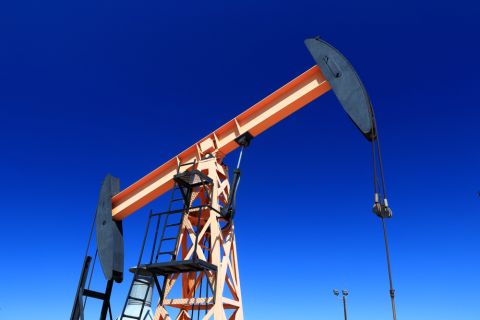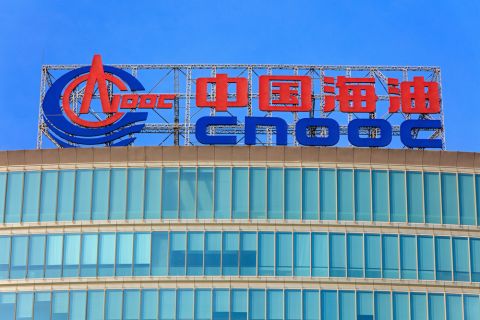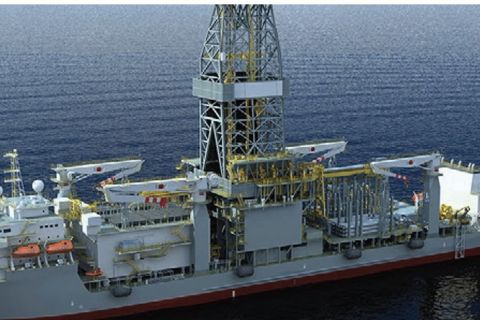
Embargoes are rarely effective in compelling a change in diplomatic behavior because they create substantial incentives to circumvent the blockade by switching trade, building indigenous capacity or changing technology.
The United States this month announced sweeping restrictions on the purchase of telecommunications equipment from, or the sale of advanced technology to, Huawei as part of the broad-ranging trade dispute with China.
Commentators have speculated China could retaliate by restricting exports of rare earths and other critical metals to the United States, and China’s president this week paid a high-profile visit to a rare-earth processing plant.
Neither strategy is likely to work in the longer term, though they may create some short-term disruption for both countries and their companies until supply chains can be re-routed.
Experience suggests supply chains and technology are surprisingly flexible, more flexible than observers give them credit for at the time, and supply restrictions are rarely an effective form of diplomatic pressure.
Critical Timber
In the late 18th and early 19th centuries, timber rather than rare earths was a critical raw material, since it was essential for the construction of wooden warships.
Britain’s Royal Navy was totally dependent on imported masts and timber from the forests of New England, Prussia and Russia, since supplies at home were inadequate.
The American Revolution and later the Napoleonic wars with France resulted in the interruption of supplies from both regions (“Forests and Sea Power: The Timber Problem of the Royal Navy”, Albion, 1926).
The rebellious New England colonies promptly cut off exports of the great trees needed to make masts, and Napoleon’s administration embargoed shipments of naval timber and other supplies from Prussia and Russia.
Contemporaries worried the navy’s fighting ability would be crippled by the lack of timber to construct new ships and repair vessels damaged by storms and enemy action, leaving the homeland open to the threat of invasion.
In the event, however, the navy developed alternative supplies in Canada, the Adriatic, and eventually further afield from India.
Even far-away New Zealand became a focus for possible acquisition of naval masts (“Murihiku: A History of the South Island of New Zealand” McNab, 1909).
More timber was smuggled to Britain from territories meant to be under the Napoleonic embargo through a system of middlemen and secret agents, relying on bribery, corruption, fake invoices and false manifests.
Later in the Napoleonic wars, timber supplies were offered from Jamaica, Brazil, Guiana, Honduras and Sierra Leone, though in most cases they were rejected as inferior or unnecessary.
To alleviate shortages at home, some naval construction was moved from dockyards at home to India’s Malabar Coast.
And Britain’s own domestic timber supplies, allegedly exhausted, proved surprisingly responsive to the demand - once prices rose sufficiently to incentivize the gentry to allow their prized oaks to be cut down.
Failed Embargoes
More recent embargoes on exports or imports have rarely succeeded in forcing a change in strategic behavior because supply chains have proved surprisingly adaptable.
Wartime Germany and apartheid South Africa both responded to actual or threatened disruption of oil supplies by developing the production of synthetic liquid fuels from domestic coal ("Hell's Cartel: IG Farben and the Making of Hitler's War Machine", Jeffreys, 2010).
Sanctions on oil exports from Iraq in the 1990s failed to remove or contain the threat from Saddam Hussein to the satisfaction of the United States, which ultimately invaded the country in 2003.
Multilateral sanctions on oil exports from Iran between 2012 and 2015 and bilateral sanctions on trade between the United States and Iran since 1979 have failed to obtain their (often unclear) objectives.
U.S./EU sanctions on Russia have not forced Moscow to withdraw from the Crimea peninsula and territories occupied in eastern Ukraine.
And multilateral sanctions on North Korea have not (yet?) compelled the government to abandon its pursuit of nuclear weapons and ballistic missile technology.
Supply Flexibility
Sanctions applied between the United States and China are unlikely to prove any more successful in forcing either side to change its strategic behavior. Both countries are likely to innovate around them.
The United States is likely to develop alternative sources of critical minerals from friendly countries such as Australia and domestic resources, including the abandoned Mountain Pass mine and processing facility in California.
U.S. manufacturers and retailers will likely re-orient their supply chains for a range of other items away from China by shifting production to other countries in Southeast Asia or Mexico.
China, too, is likely to indigenize the supply chain for its computer and telecommunications systems by developing its own domestic chipmaking equipment and computer operating systems.
China will also diversify its raw materials away from the United States, buying soybeans from Latin America and developing alternative sources of oil and natural gas at home or in neutral third countries such as Qatar and Russia.
In time, China will also develop alternative financial and payments systems that by-pass the U.S. dollar and strategic vulnerabilities such as the SWIFT system.
Some observers claim such re-orientation of supply chains will prove very difficult if not impossible, but they are likely overestimating the difficulty.
Britain’s traditional naval shipbuilders insisted only English oak was good enough to build warships and masts had to come from New England, other sources were too inferior.
When necessity forced a change, however, it turned out that Indian teak and Canadian pines were just as good if not better for construction and masts.
Indian shipyards proved just as capable as the royal yards at Deptford, Woolwich, Chatham, Portsmouth and Plymouth.
Given sufficient financial and strategic incentive, U.S. supply chains will shift away from China, and China will develop its own fully indigenous computer industry and alternative sources of farm products and raw materials.
Re-orienting supply chains will impose severe disruption for both countries and will destroy a substantial amount of wealth as previous investments are stranded and abandoned.
Economic costs will be high, and there will be losers as well as winner, but supply chains will adjust.
History suggests neither the United States nor China will be able fundamentally to change the other’s strategic behavior through trade embargoes.
Recommended Reading
To Dawson: EOG, SM Energy, More Aim to Push Midland Heat Map North
2024-02-22 - SM Energy joined Birch Operations, EOG Resources and Callon Petroleum in applying the newest D&C intel to areas north of Midland and Martin counties.
E&P Highlights: April 1, 2024
2024-04-01 - Here’s a roundup of the latest E&P headlines, including new contract awards.
CNOOC Makes 100 MMton Oilfield Discovery in Bohai Sea
2024-03-18 - CNOOC said the Qinhuangdao 27-3 oilfield has been tested to produce approximately 742 bbl/d of oil from a single well.
CNOOC Finds Light Crude at Kaiping South Field
2024-03-07 - The deepwater Kaiping South Field in the South China Sea holds at least 100 MMtons of oil equivalent.
Valaris Updates Fleet Status
2024-02-19 - The backlog of these contracts and extensions is valued at $1.2 billion.





